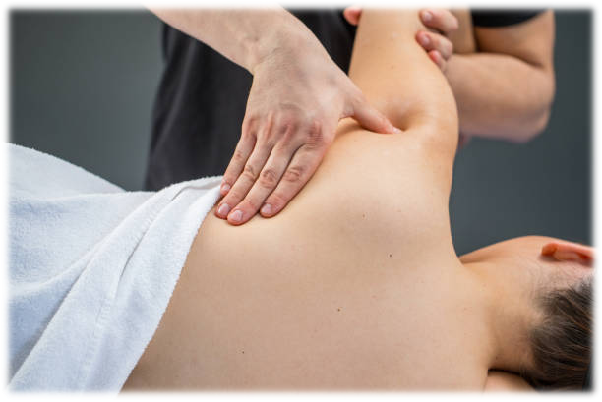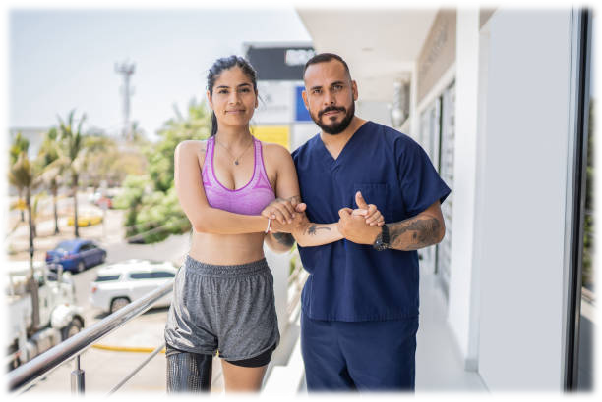
In the fast-paced world of sports, time is everything. For athletes, an injury doesn’t just hurt physically—it can derail training schedules, competitions, and even careers. That’s where modern physiotherapy steps in as a game changer. Today’s cutting-edge Urban Sports & Rehab techniques are designed to speed up recovery, helping athletes return to peak performance faster and stronger than ever.
__________________________________________________________________________________________________________________________________________
1. Advanced Manual Therapy
Hands-on treatment is still at the heart of physiotherapy, but techniques have evolved. Skilled therapists use targeted soft tissue mobilization, myofascial release, and joint manipulation to improve mobility, relieve pain, and accelerate healing at the injury site.
Why it works: Restoring optimal tissue mechanics early can reduce stiffness and prevent compensatory injuries.
Tips - If done too aggressively or without proper assessment, manual therapy can sometimes cause soreness, bruising, or even aggravate underlying issues, especially in sensitive or inflamed areas.

2. Dry Needling & Trigger Point Therapy
Dry needling has gained popularity for its ability to release deep muscle knots and improve blood flow. By targeting trigger points, therapists can quickly relieve tightness and pain, allowing athletes to regain movement and strength faster.Game changer: Especially effective for stubborn muscular pain that doesn’t respond to stretching or massage alone.
Tips - If done too aggressively or without proper assessment, manual therapy can sometimes cause soreness, bruising, or even aggravate underlying issues, especially in sensitive or inflamed areas.
3. Blood Flow Restriction (BFR) Training
BFR is revolutionizing rehab. By applying controlled pressure to a limb during low-load resistance training, it tricks the body into thinking it’s working harder, triggering muscle growth and strength gains—without the stress of heavy weights.
Benefit: Athletes maintain strength and muscle mass even when full weight-bearing isn’t possible.
Tips - Improper use of BFR can lead to nerve irritation, numbness, or in rare cases, blood clot risks if not monitored closely by a trained professional.
4. Shockwave Therapy
This non-invasive technique uses high-energy sound waves to stimulate tissue repair, reduce inflammation, and break down scar tissue. It’s highly effective for tendon injuries, plantar fasciitis, and chronic pain issues.
Fast track: Athletes often report faster pain relief and quicker return to training.
Tips - Shockwave therapy can be uncomfortable during the session and may cause short-term swelling, redness, or bruising. It's also not suitable for certain medical conditions (e.g., clotting disorders, infections).
5. Sports-Specific Rehab & Functional Training
Gone are the days of generic rehab. Today, Urban Sports & Rehab techniques design sports-specific programs that mimic the demands of the athlete’s sport—whether it’s sprinting, swimming, or tennis. This ensures a smooth transition back to competition.
Advantage: Rehab that prepares athletes not just to heal, but to compete at full intensity.
Tips - Without careful monitoring, athletes may return to high-intensity activity too soon, increasing the risk of re-injury or setbacks.
6. Recovery Technology: Cryotherapy & Compression Therapy
Urban Sports & Rehab techniques now integrates high-tech recovery tools like cryotherapy chambers and pneumatic compression devices. These reduce muscle soreness, flush out metabolic waste, and speed up tissue healing after tough sessions.
Edge: Accelerates recovery between sessions, keeping athletes ready to train hard, day after day.
Tips - Overuse of these technologies may mask underlying issues, giving a false sense of recovery. Cryotherapy, in particular, may cause skin irritation or sensitivity to cold if not used correctly.
7. Movement Screening & Injury Prevention
The best recovery is prevention. Using motion analysis and screening tools, physiotherapists can spot biomechanical flaws before they cause injury. Early correction keeps athletes performing longer and reduces downtime.
Pro move: Identifying hidden risks prevents recurring injuries, shortening overall recovery times in the long run.
Tips -
Screening provides valuable insights, but false positives can lead to unnecessary worry or interventions if not interpreted in the broader context of the athlete’s history and sport.

The Winning Combo: Personalized Care
What makes these techniques truly powerful is how physiotherapists personalize treatment plans. By understanding the athlete’s sport, body, and goals, therapists craft recovery roadmaps that are both safe and effective—getting athletes back in the game quickly without cutting corners.
Tips - Highly personalized care can require more frequent sessions and ongoing adjustments, which may be time-consuming and costly if not well-planned.
__________________________________________________________________________________________________________________________________________
Conclusion
With the right techniques, injury no longer means long spells on the sidelines. Today’s innovative practices are reshaping rehab, offering athletes faster, smarter ways to heal and return stronger. Whether you're a weekend warrior or a pro competitor, partnering with a skilled physiotherapist at Urban Sports & Rehab techniques can be your biggest asset in overcoming setbacks and achieving peak performance.
#SportsPhysiotherapy #AthleteRecovery #FasterRecovery #PhysiotherapyForAthletes #InjuryRehabilitation #SportsInjuryRecovery #RecoverStronger #RehabToPerformance #InjuryPreventionTips #GameChangingRecovery #JohorBahruPhysiotherapy #JBRehabCenter #PhysioJohorBahru #NeckPainJohorBahru #JBWellnessClinic #RehabJohorBahru #JBSpineCare #NeckReliefJB #JBPhysioExperts #JohorBahruPainRelief






 BR 15001
BR 15001  US 7507
US 7507  CN 2687
CN 2687  AR 1941
AR 1941  SG 1309
SG 1309  AU 1067
AU 1067  TH 1026
TH 1026  EC 940
EC 940 



